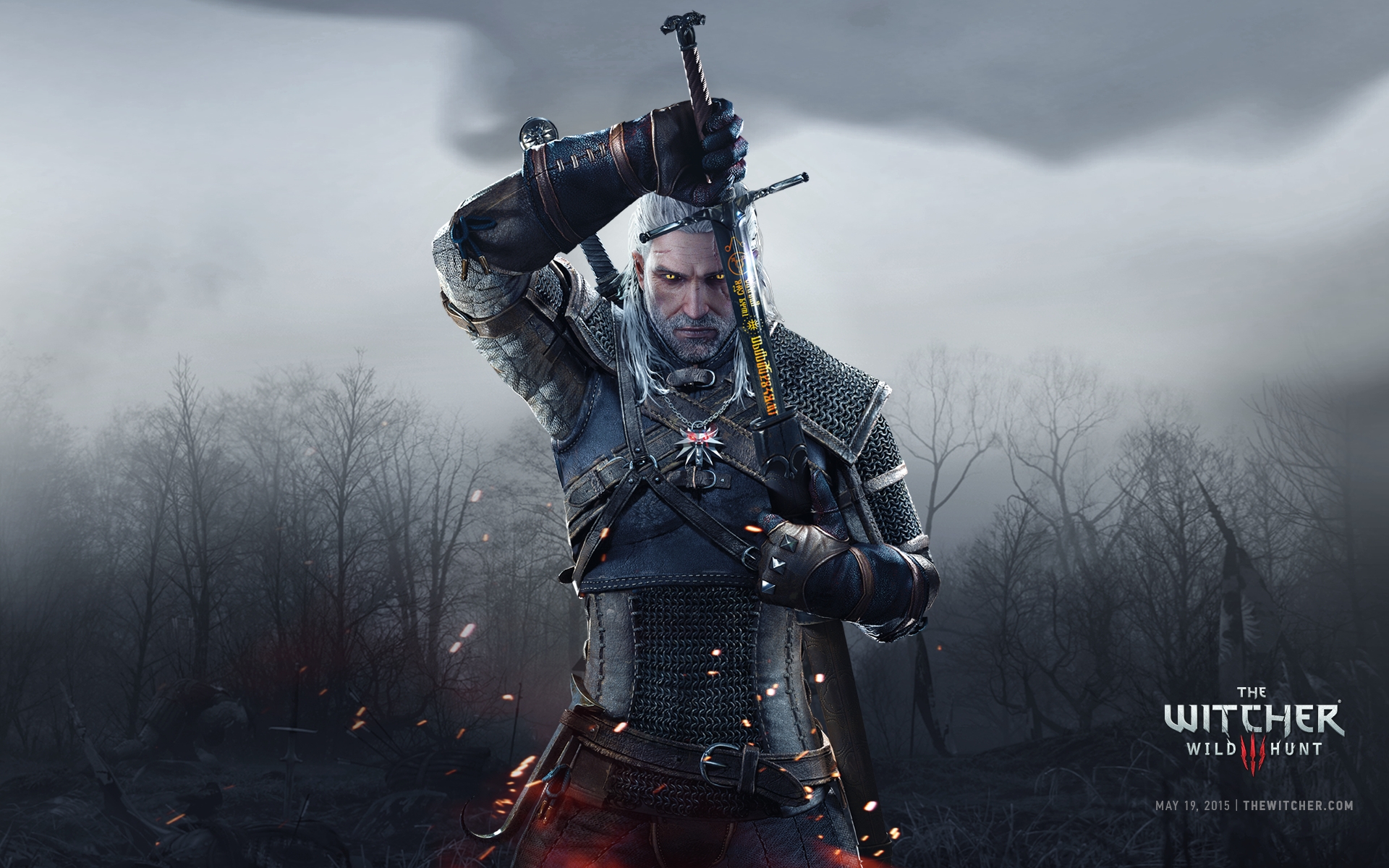
It's a great surprise to me that I haven't written about the Witcher yet, which is my top consideration for Game of the Year so far, even over Bloodborne, which is the spiritual sequel to my favorite series of all time (Dark Souls). So, today I write about the Witcher Wild Hunt and why, even if I haven't beaten it, it is my top candidate for Game of the Year, so far.
The story of the Witcher goes back to a time before the games, and I've read the first book in the series, just to get a little background of the protagonist, Geralt of Rivia, The Butcher of Blaviken. The lore is so deep that it may scare some of the people not caught up with it away from this game. CD Projekt Red (the devs) made the story of this game approachable to the point where someone who had never even heard of the Witcher could jump right in and be engaged in the story and even in Geralt as a character. Though, you have to dig deep into the in-game lore books to get a real great backstory to the game world and the secondary characters, it is not necessary, but recommended.
Enemy design is unparalleled by most game currently in the market. It feels like every time I boot the game up and play I am running into a new, unique enemy and having to learn a strategy on how to kill it, and filling up my bestiary -- an in-game log, to keep track of enemies you've killed, their weaknesses, and their backstories -- which is very very helpful and interesting. Larger enemies, like Drakes, Griffins, and Cockatrices, are often large parts of intricate "Witcher Contracts", which are essentially hunts for money; kill this monster, collect the reward, go home. Each contract having multiple steps including collecting information about the beast or the instance, tracking the beast, and killing it, with other steps being a variable.
Sidequests in this game are really something else. Each quest including deep characters, intricate plots, and engaging events. A lot of the sidequests follow suit of the original series's author Andrzej Sapkowski and resemble classic fairy tales, often with a dark twist. These quests often tie into the main story quests as well, whether it be in a small way like a person missing in a cutscene, or in a larger way like getting passage to a city because you sat down and had a drink with a random bar patron.
Quick aside, I have played this game for 140 hours (80 on PC and 60 on PS4), and still haven't beat it or experienced all of the quests or content this game has to offer.
The graphics/visuals and art style of this are fantastic: the high fantasy and wide color palate make the visuals pop and stand out among all of the darker, gothic colors we've seen in this new generation of games. Enemy and character designs are stylized, yet realistic, and truly help with the immersion aspect of the game. Though, NPC facial designs aren't too different.
Gameplay and combat, while a little clunky and hard to get used to, is deep and complex. Your five spells and two different swords are your main mediums of carnage, -- with a crossbow and bombs as a backup-- and can be used on most anyone. On top of that, you also have plenty of different potions and oils to use during and before combat, which add a depth beyond hack-and-slash action. Oils, applied to your weapon before combat, give you bonus damage to whatever enemy your oil correlates to. Potions can be used at any time and have many different purposes, like faster stamina regeneration, bonus damage, and even seeing in the dark, among other things.
Overall, what I've played of this game is a masterpiece, truly one of the greatest open world games of our time. I cannot wait to see how the story of Geralt comes to an end, and what goes on in the mean time.

No comments:
Post a Comment